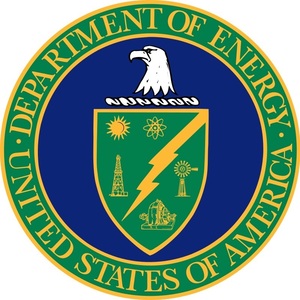DOE funds 4 biofuel projects under Co-Optima initiative

May 10, 2021
BY U.S. Department of Energy
Today, the U.S. Department of Energy announced the selection of four projects totaling $1 million to conduct cutting-edge applied research and development concerning the interaction between promising biofuels and combustion engines. The projects will leverage a range of National Laboratory capabilities as part of the Co-Optimization of Fuels & Engines (Co-Optima) initiative, and aim to help bring these fuel-engine combinations closer to commercial adoption. The Co-Optima initiative provides American industry with the scientific knowledge needed to maximize vehicle performance and efficiency, leverage domestic fuel resources, and reduce life cycle emissions.
DOE awarded funding to the following projects:
•Aramco Services Company (Houston, Texas), Marathon Petroleum Co. (Findlay, Ohio), and Caterpillar (Peoria, Illinois) will work with Argonne National Laboratory (ANL) to identify bioblendstock characteristics (including carbon number and molecular structure) that will provide the best 87 anti-knock index gasoline for heavy-duty gasoline compression ignition engines.
•The Coordinating Research Council (Alpharetta, Georgia) will work with Pacific Northwest National Laboratory and Los Alamos National Laboratory to develop an isotope ratio mass spectrometry method as a cost-effective means to identify renewable content in co-processed biomass- and fossil-derived fuels.
Advertisement
Advertisement
•Cummins (Columbus, Indiana) will work with Oak Ridge National Laboratory to develop a deeper fundamental understanding of how physical and chemical fuel properties affect mixing-controlled compression ignition combustion in medium-duty engines through computational fluid dynamics simulations.
•Shell (Houston, Texas) will work with ORNL and ANL to quantify how fuel volatility can be used to increase anti-knock performance, in order to increase engine efficiency and the use of biomass-derived fuels.
Each awardee will receive up to $250,000 in National Laboratory assistance for experimental or computational projects that leverage innovative capabilities in the areas of bioblendstock fuel property, production, and combustion performance research. The projects will also focus on the impacts of adoption of co-optimized fuel-engine combinations. Each of the awardees has committed to a 20 percent cost share contribution.
Sponsored by the DOE Office of Energy Efficiency & Renewable Energy’s Vehicle Technologies and Bioenergy Technologies Offices, Co-Optima partners include ANL, LANL, PNNL, ORNL, Idaho National Laboratory, Lawrence Berkeley National Laboratory, Lawrence Livermore National Laboratory, National Renewable Energy Laboratory, and Sandia National Laboratories, as well as more than 20 university and industry partners.
Advertisement
Advertisement
EERE is focused on decarbonizing the transportation sector, the single largest source of domestic greenhouse gas emissions. EERE’s work in boosting fuel economy and vehicle performance, while reducing emissions, is central to the bold energy and climate goals laid out by President Biden: building a 100% clean energy economy and reaching net-zero emissions no later than 2050.
Learn more about the Co-Optima initiative and Co-Optima consortium partners.
Related Stories
CoBank’s latest quarterly research report, released July 10, highlights current uncertainty around the implementation of three biofuel policies, RFS RVOs, small refinery exemptions (SREs) and the 45Z clean fuels production tax credit.
The U.S. Energy Information Administration maintained its forecast for 2025 and 2026 biodiesel, renewable diesel and sustainable aviation fuel (SAF) production in its latest Short-Term Energy Outlook, released July 8.
XCF Global Inc. on July 10 shared its strategic plan to invest close to $1 billion in developing a network of SAF production facilities, expanding its U.S. footprint, and advancing its international growth strategy.
U.S. fuel ethanol capacity fell slightly in April, while biodiesel and renewable diesel capacity held steady, according to data released by the U.S. EIA on June 30. Feedstock consumption was down when compared to the previous month.
XCF Global Inc. on July 8 provided a production update on its flagship New Rise Reno facility, underscoring that the plant has successfully produced SAF, renewable diesel, and renewable naphtha during its initial ramp-up.
Upcoming Events










